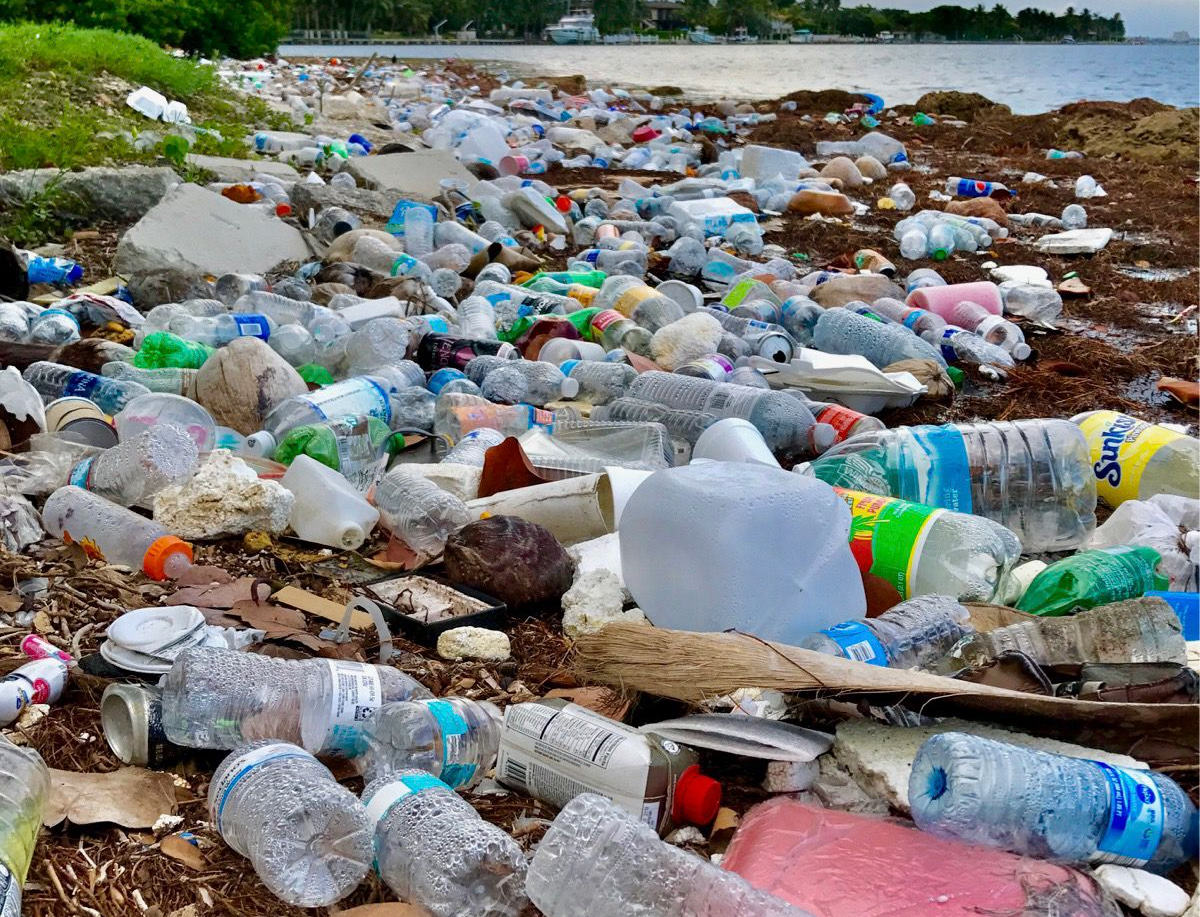
Photo courtesy of VolunteerCleanup.org

Audio By Carbonatix
The Fourth of July is a great time to hit the beach, bust out the brews and barbecue, and enjoy some fireworks with toes in the sand. But what happens afterward? Most folks leave their Independence Day trash lying on the beach without much thought, making July 5 the worst single day of the year for beach pollution.
“Because of that high number of people and the celebrations extending well into the evening, we’ve seen that July 5 is literally the dirtiest day on the beach,” Evan Orellana, regional manager for Florida and Puerto Rico for the Surfrider Foundation, tells New Times.
Founded in 1984 in Malibu, California, by a group of surfers who sought to protect the beach, the Surfrider Foundation is now a nationwide outfit that coordinates beach cleanups, water-quality testing, and legislative action to ensure clean water and shorelines.
In 2021, the organization picked up close to 200,000 pounds of trash via 1,230 cleanups around the U.S., but as Orellana notes, that’s “just a drop in the ocean” compared to the total amount of plastic pollution in the sea.
According to the most recent estimate (2015), the world’s oceans contain approximately 150 million tons of plastic trash, a number that’s expected to reach 600 million tons by 2040.
The world’s oceans contain an estimated 150 million tons of plastic trash, a number that’s expected to reach 600 million tons by 2040.
Much of that trash comes from single-use plastics such as drink bottles, straws, and plastic containers. In Miami, groups like VolunteerCleanup.org pick up around 200 pounds of trash per cleanup around Biscayne Bay.
This year, in an attempt to mitigate the annual Fourth of July pollutant disaster on South Florida beaches, Surfrider is spreading the word about the dirtiest day of the year and how to better care for the environment while still having fun.
“We treat the beach the same way you treat natural spaces: Leave only footprints and memories. Make sure you pack everything you brought, pick up fireworks, and properly dispose of plastic, Orellana urges. “If the trash bin is full, either take your garbage home with you or bag it up securely and leave it next to the bin so city workers can pick it up. They’re not going to comb the beach for buried trash.”
Residue from fireworks can leave harmful chemicals in the sand and soil if left behind, and one of Surfrider’s main goals with the current campaign is to persuade beachgoers to fetch their spent pyrotechnics, take them home, and dispose of them properly.
In addition, Surfrider and local environmental organizations are holding cleanups around South Florida on July 5 to coincide with national Clean Beaches Week, July 1-7.
Surfrider’s Palm Beach County chapter will hold a cleanup on July 5 at South Beach Park pavilion in Boca Raton from 8 a.m. to 10 p.m. VolunteerCleanup has an event scheduled at Virginia Key Beach Park from 5:30 to 7:30 p.m. that same day. For info about upcoming cleanups, visit Surfrider.org or VolunteerCleanup.org and sign up for updates.
Orellana emphasizes that the Fourth of July can still be a fun time to kick back with the family, but “if we’re gonna celebrate the nation, we should celebrate its natural beauty, not just its independence.”